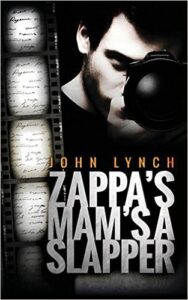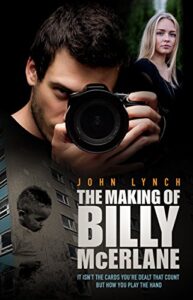
The distinctly English Debbie Young debates the use of regional colloquialisms in self-published books
Wherever you learned to talk, read and write, it's likely that you will be a habitual user of colloquialisms.
Colloquialisms are great for adding colour and interest to a piece of prose, but like any word, their value is diminished if the reader or listener has no idea what they mean.
Now and again, ALLi authors test out a regional colloquialism by sharing it with our membership via our closed Facebook group (a members-only privilege). If it resonates with ALLi's global membership, that's a good sign – and if not, the questioner must decide whether it's necessary to field a substitute.
But colloquialisms aren't solely defined by region. They also vary by era. What makes sense to a fifty-year-old writer may puzzle a twenty-year-old reader, and vice versa.
“Would a 14-year-old use the word ‘tosh?'” asked a fellow author on the forum the other day. I checked with my resident 14-year-old. “No,” she said brightly, “but I think I will from now on.”
Can we expect our readers to be as adaptable as my daughter, or should we be prepared to murder our darling phrases and move on?
Colloquial and Proud of It
“More people are asking these kind of questions,” comments British novelist Christopher Wills. “I'm not sure why. In my opinion it doesn't matter if the reader doesn't fully understand a piece of slang or a colloquial phrase.” Here are his reasons:
- First, the context may help.
- Second, part of the fun of reading about different eras, places, groups and societies is to see the colorful way the characters speak.
- Third, if the reader fully understands the phrase, the chances are it is a cliché. “If I choose to read a novel about New York Gangs set in the 1850s,” says Christopher, “I expect to see the kind of language they used, including the swear words and insults. I don't want a sanitized version that updates the language just so I feel comfortable with it.
He counsels: “Be brave, and don't drain the color out of your writing, or you could end up with a bland piece of text.”
All About Balance
US mystery writer Anna Castle is more circumspect, saying:
“I've gotten pushback on language, in reviews – which I don't care so much about – but also from critiquers. It's a judgement call. In a case like this one, what's the point of including a joke that nobody gets? Writers' brains put things together in overly idiosyncratic ways sometimes. That's when we need a little help from our friends.”

“Okay ,does anyone here know the meaning of the word ‘tosh' please?” (The Tower of Babel by Pieter Bruegel the Elder –
public domain)
One way out of the dilemma is to explain a colloquialism that you think may not be understood, either within the body copy or via a footnote. Irish novelist JJ Toner points out that Amazon Prime offers a feature called X-Ray for movies and television shows which allows viewers to access background notes linked to the video.
I can see the appeal. Ebook readers are already used to clicking on a word to find its dictionary definition. I even find myself trying to do that in print books sometimes!
But would using such a feature to explain a colloquialism break the spell of the story, while you invite the reader to step away from the book for a quick language lesson? The reader might find the process less intrusive if used to check facts, for example in a work of historical fiction, rather than to interrupt the flow of a piece of dialogue peppered with slang.
Biting the Bullet

Colloquial title before…

…more accessible title after
British novelist John Lynch, who treasures the dialect of the north-east of England where he grew up, recently renamed and relaunched a novel which included a distinctly regional colloquialism in its title: Zappa's Mam's a Slappa morphed into The Making of Billy McErlane. Though sad to replace what had been his preferred working title, within days John was rewarded by increased sales, rising to #359 in Dark Comedy and #2228 in Coming of Age on the Amazon UK charts, and still going up.
Ultimately, if you want to ensure a smooth reading experience for your fans, the best answer may be: if in doubt, leave it out, no matter how sad you are to see it go.
OVER TO YOU What's your view on the use of colloquialisms in your writing? Have you found a different solution? Any case studies or cautionary tales to share? We'd love to hear them!
#Authors - are you avoiding colloquialisms in your writing for fear of puzzling readers? Should you be bolder about it? #ALLi authors debate the issue with @DebbieYoungBN Share on XOTHER TOP TIPS ABOUT WRITING CRAFT
From the ALLi Author Advice Archive





I’m with Christopher Wills. Why drain all the flavor out of your language and dumb everything down? I first encountered these words and learned them in a context from reading other books.
Might as well annotate every cultural reference (history, archaeology, linguistics, biology, etc.) An ordinary adult mastery of present and past should be unremarkable. If not, write for Young Adults.
It’s one step away from the dreadful historical romance novels that have no grasp whatsoever of the culture of a particular time and place, and don’t care.
I don’t doubt that you might get more sales when you smooth off any facet that might have required broad exposure or decent education. Well, I may be commercial, but I’m not that commercial.
It’s a fine judgement. I think context and clarity are key. I use foreign language in my thrillers to provide colour and interest, but never (knowingly) where the meaning might not be easily guessed or where it really matters for the story.
I’m all in favor of colloquialisms, provided they don’t end up leaving the reader in the dust. A single word like ‘tosh’ or early American gang epithets are easy enough to grasp in context. But as I recall, the original question was about a joke based on a colloquialism that nobody in the Facebook group understood — not even most of the other Brits! I don’t remember the joke, maybe somebody else does? It fell quite flat, at any rate.
This reminds me of the supposed witticisms in French or even Latin that pepper Dorothy Sayers’ Peter Wimsey novels, leaving those of us who didn’t go to public schools in the 1920’s feeling disgruntled and hoping she didn’t bury any clues in those passages.